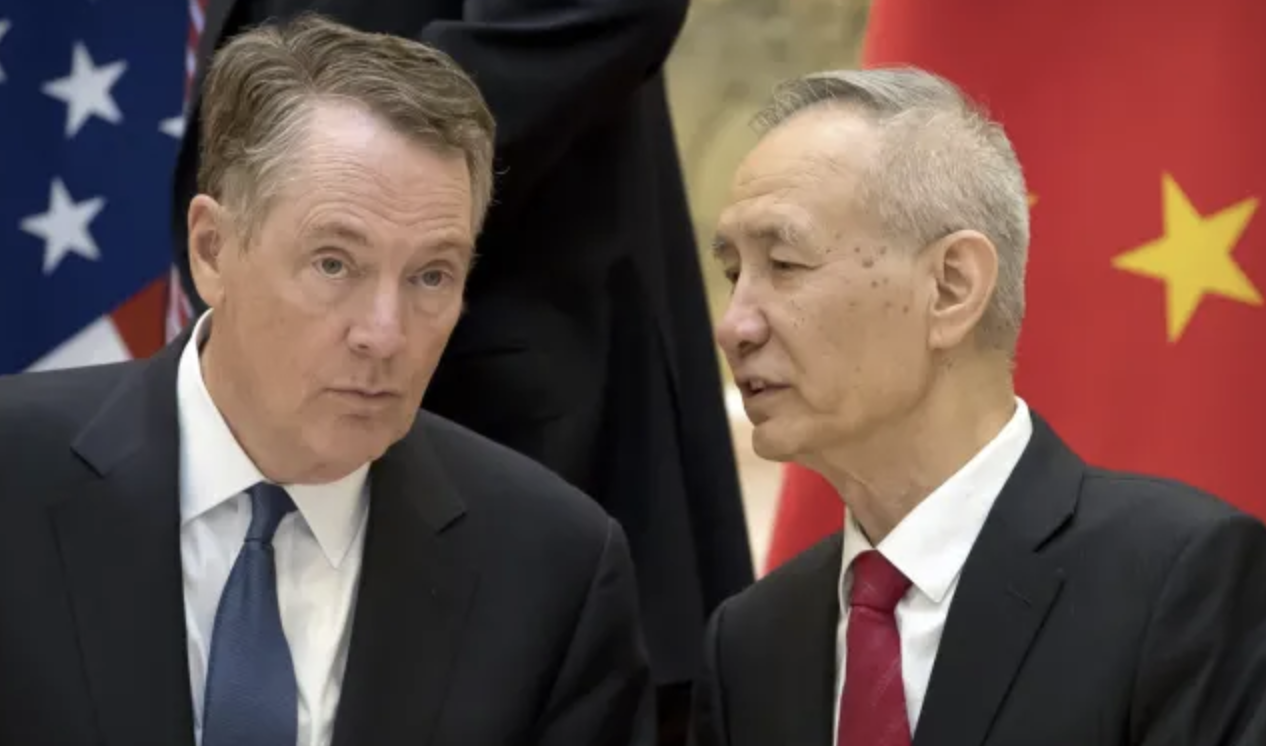For weeks now, those who can see past the White House’s ‘cautious optimism’ regarding the potentiality of the ongoing trade talks with Beijing have probably understood that the year-long trade war with China could end one of two ways: Either Trump walks away from the deal, risking a brutal correction in stocks (which, according to some, is the only barometer of his performance in office that matters to Trump) or cave on several of the administration’s most unpalatable demands.
So far, the White House has already purportedly punted on enforcement (though nothing is set in stone) and backed away from demands that Beijing scrap industrial subsidies.
And according to a just-released report in the FT, Trump has instructed his negotiators, who are presently engaged in talks in Beijing, to drop a demand that China halt the instances of cybertheft that have become such a widely publicized point of contention between China and the West.
To what we imagine is the frustration of Robert Lighthizer, the lead trade negotiator, who has insisted that the US take advantage of its ‘leverage’ to exact the best possible deal or simply walk away and wait, one source told FT that Trump “wants a deal.” End of story.
Donald Trump has dropped a central demand from trade negotiations with China that it halt alleged instances of commercial cyber theft, in order to end a long-running tariff dispute. Mr Trump has softened his administration’s opening position on what it originally characterized as “Chinese government-conducted, sponsored, and tolerated cyber intrusions into US commercial networks,” according to several people briefed on the negotiations. The US is instead likely to accept a watered-down commitment from Beijing as an alternative.
“A lot of issues are being jettisoned from this negotiation because President Trump wants a deal,” one of the people said. The absence of strong provisions against Chinese theft of US trade secrets will raise concerns that the Trump administration is prepared to settle for limited progress on crucial “structural” reforms in the trade agreement.
Beijng has denied accusations of state-sponsored cyber espionage, and claims that it has been fully compliant with a promise it made to President Barack Obama in 2015. When it comes to the trade deal, the Chinese are adamant that language condemning cyberespionage not be included, per the FT’s source.
“With regards to enforceable benchmarks [on cyber theft], there will be nothing that goes beyond Xi Jinping’s broken promise at the White House in September 2015. They are just going to ignore a core feature of the original [US trade complaint],” the person said.
And now that the White House has caved, it’s time for some revisionist history as one trade official said the US never expected Beijing to agree to its demands in the first place.
James Green, former head of the USTR’s Beijing office, said it was always unlikely that the trade talks would resolve the two sides’ bitter charges and countercharges over alleged commercial cyber theft. “I don’t think the administration seriously thought that trade talks or tariffs would curb those activities,” said Mr Green, who is now a senior adviser at McLarty Associates. “We could highlight the practice, but it would need to be law enforcement and national technical means that would actually do something,” he said.
Contrary to Mick Mulvaney’s insistence that Trump would only accept a great deal, the FT hinted that the US will be caving on other key demands as the White House scrambles to ensure that the next round of talks in Washington next week will be the last.
In the final stretch of talks, Mr Lighthizer and Mr Mnuchin are expected to try to eke out some eleventh-hour pledges from China in a number of areas, from biotech approvals, to cloud computing, to data protection for drug companies. They will also attempt to finalise the agreement on the enforcement mechanism to ensure compliance with the deal, and the fate of existing tariffs, with the US administration insisting to maintain some of its levies on $250bn of Chinese imports until Beijing meets certain implementation benchmarks. Although Mr Trump has frequently promised that a big trade deal with China was around the corner, US officials insisted that he might still walk away.
If this report is accurate, then the trade pact might end up resembling Lighthizer’s worst nightmare: An agreement to significantly lower punitive tariffs and drop most of the US’s big demands in favor of a promise by Beijing to buy billions of dollars in agricultural goods – something that Trump could at least take home to America’s suffering farmers.
via ZeroHedge News http://bit.ly/2GMWuod Tyler Durden
